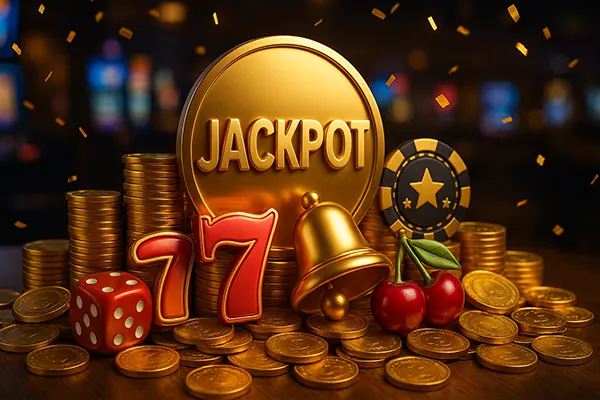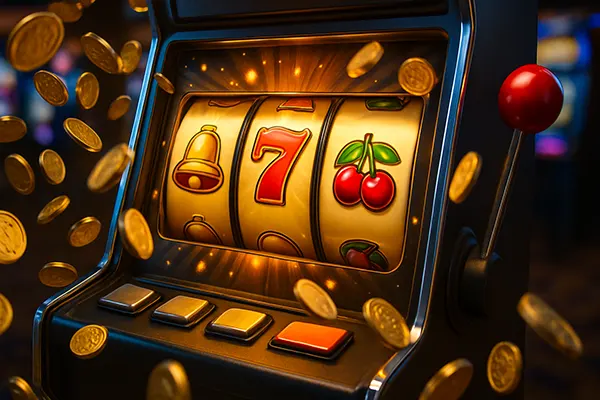
How Progressive Jackpots Work: Myths, Facts and Real Winning Odds
Progressive jackpots are a compelling feature in many slot games, yet they remain widely misunderstood. From the mechanics behind their accumulation to the misconceptions about betting strategy, players often enter the race for a big win without knowing how the system truly works. This article aims to provide a clear, factual breakdown of how progressive jackpots operate in 2025, separating myths from reality and helping players better understand their chances.
Types of Jackpots: Local, Progressive, and Networked
Not all jackpots are created equal. A local jackpot is limited to a single game or machine, with the prize pool built from wagers made only on that particular game. This means the jackpot grows more slowly, but the odds of winning are generally better due to a smaller player pool.
Progressive jackpots, on the other hand, increase with each wager made on the game. The prize pool builds continuously until someone wins. These jackpots can be massive, but they come with longer odds. They are typically found in slot games from providers such as Microgaming, NetEnt, and Play’n GO.
Networked jackpots go a step further. These pools accumulate from a variety of games across multiple casinos, often operated by the same provider. For example, the Mega Moolah jackpot from Microgaming connects hundreds of casinos, meaning huge payouts but an even larger player base competing for the prize.
How Do They Actually Accumulate?
Each time a player places a bet on a progressive slot, a small percentage of that wager—usually between 1% and 5%—is added to the jackpot pool. The remaining amount contributes to the game’s RTP (return to player) and the casino’s revenue.
The system behind this process is governed by random number generators (RNGs). These ensure that the jackpot can theoretically be won at any moment, regardless of bet size or play duration. There’s no human input or pattern prediction involved.
For example, Microgaming’s WowPot! network uses centralised RNGs to sync jackpot status across all participating games in real-time. When the win condition is triggered, the software locks in the prize and identifies the winning spin without delay or manipulation.
Myth: The Higher Your Bet, the Better Your Chances
Many players still believe that betting higher automatically boosts your odds of hitting the jackpot. While some slots do require a minimum bet to be eligible for the progressive prize, most modern games use flat odds systems. This means that the jackpot trigger is not affected by how much money you wager.
Pragmatic Play, for instance, has adopted balanced RNG mechanics that make it possible to win a progressive jackpot even on a minimum bet, as long as the jackpot condition is met. This system ensures fairness and inclusivity across all levels of play.
It’s true, however, that in some legacy titles or certain exclusive jackpot setups, only players who bet the maximum amount are eligible for the top-tier prize. This is clearly stated in game rules and shouldn’t be assumed across all titles.
Psychological Traps: “I Almost Won!”
The illusion of “almost hitting the jackpot” is a known psychological effect designed into many slots. Near misses—such as landing two jackpot symbols and a blank—trigger a sense of being close, although in reality, every spin is completely random.
This perception leads many players to believe that the next spin must be the winning one, which is statistically false. RNG does not retain memory; each spin is an independent event. Your chances do not improve the longer you play.
Regulators in markets such as the UK and Sweden have pushed for clear disclosures about this to prevent misconceptions that encourage problem gambling. Providers are now required to explain how jackpot odds work within game info panels.

When It’s Worth Playing for the Jackpot
Knowing when to chase a progressive jackpot depends on several factors. First, consider the game’s RTP. High RTP titles (above 95%) offer more favourable overall odds, which helps balance out the long shot of the jackpot.
Next, look at the current size of the jackpot. Some slots have a “break-even” threshold—an amount where the value of the prize outweighs the statistical cost of chasing it. This data can be found through online trackers or official game pages from developers.
Finally, it’s important to view jackpot play as a form of entertainment, not investment. Set a budget and play within it, focusing on the enjoyment of the game itself rather than obsessing over the jackpot prize.
Top Games with Verified Progressive Jackpots
Several games available on sites like Langit99 offer fully audited and verifiable progressive jackpots. These include titles such as Mega Moolah (Microgaming), Divine Fortune (NetEnt), and Cash Splash (Microgaming).
Each of these games publishes detailed RTP, volatility, and jackpot contribution data. They are certified by testing labs like eCOGRA and iTech Labs, ensuring the integrity of the mechanics and fair play guarantees.
Look for games with transparent terms, real-time jackpot displays, and active jackpot histories. This kind of transparency is a sign of a trustworthy game and helps players make informed decisions about where to wager.
